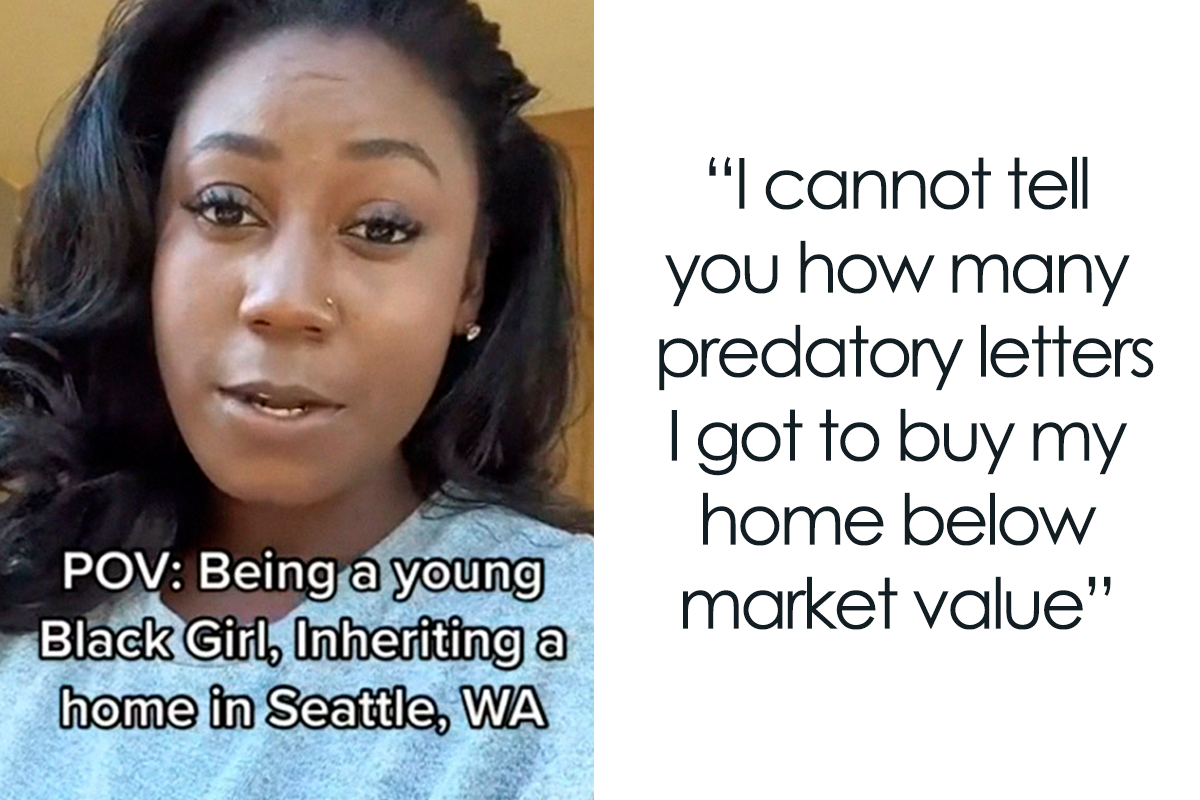
Woman Inherits A House, Shares How She Immediately Started Getting Bullied With Insulting Offers As Part Of Gentrification
InterviewUnfortunately, gentrification is nothing new to many cities around the world. We’ve seen it manifest in trendy coffee shops and expensive boutiques appearing where mom and pop shops used to be for decades, or rent prices rising to the point where locals are pushed out of the neighborhoods they’ve called home for generations. But as one Seattle homeowner recently pointed out, gentrification can appear in many sinister ways.
Keisha Credit, or KreateWithKeisha on TikTok, shared a video explaining how she received an absurd amount of pressure from predatory investors immediately after inheriting her grandfather’s multi-million dollar home. Below, you can read Keisha’s full explanation of how harmful gentrification can be, as well as an interview we were lucky enough to receive from her and some of the replies viewers have left on her video.
Let us know in the comments if you have ever experienced pressure like this to sell in your neighborhood, and then if you’re interested in checking out another Bored Panda article touching on how challenging it can be to become a homeowner in the first place, look no further than right here.
After inheriting a multi-million dollar home in Seattle, Keisha Credit shared a video calling out the people who have been pressuring her to sell
Image credits: keishacredit
Image credits: Bartłomiej Balicki (not the actual photo)
Image credits: kreatewithkeisha
She explained that gentrification affects residents in a number of ways, particularly Black homeowners
Image credits: kreatewithkeisha
Image credits: kreatewithkeisha
Image credits: kreatewithkeisha
Image credits: kreatewithkeisha
Keisha also explained Seattle’s history of redlining
Image credits: kreatewithkeisha
Image credits: kreatewithkeisha
Image credits: kreatewithkeisha
Image credits: kreatewithkeisha
You can see the full video right here
@kreatewithkeisha Reply to @athompz I’ll just say this… 🤌🏾💟 #Seattle #Gentrification 🏡#HomeOwnership #Land #Property #Stories #blackgirlinseattle #SeattleNative #SeattleStories #centraldistrict #History ♬ original sound – Keisha Credit
We reached out to Keisha via email to hear what inspired her to share this video with her followers in the first place and if this is a topic she commonly discusses on her platform. “I just decided to talk about it that day!” she told Bored Panda. “One of my core values is ‘Black Wealth Matters’, and I’ve educated my audience- predominately Black, about business, finance, and wealth. I am a full time Entrepreneur, have been for 10 years, and a Business Coach. I teach based off my experiences, and with TikTok. I wasn’t on the platform to ‘teach’, but just to have conversation and build community,” Keisha explained. “I’ve been sharing my renovation journey, and the storytelling and transformations were a better fit on TikTok instead of Instagram. But on Instagram, I had been sharing about the transition of wealth with black families on my stories, for a while. I often will share things I know and learn, that can help benefit others in their own experiences.”
We also asked Keisha if she thinks Seattle is a particularly gentrified city or if this issue is prevalent all throughout the US. “Seattle has a clear history of redlining and gentrification. The demographics of my community- the CD, have changed since I’ve been alive. And by the stories from my aunts & uncles, its DRASTICALLY different from when they were growing up,” Keisha explained.
“The CD feels very different now, not saying that I prefer one or the other, but these are the facts. It bothers me that from my words, people are believing that ‘I don’t like white people in my neighborhood’, and that is NOT what I am saying,” she noted. “I have lovely neighbors, that are white, and some that are black. And I have some terrible neighbors, some that are white, and some that are black. The facts are, that this neighborhood was ONCE predominately people of color. Now, it is not- and their stories are still present. They have been sharing their stories in the comments, and with me via email. Seattle is not the only place. All over the country, people have been telling me their own stories. These are real stories- to see so many people in my TikTok comments saying, ‘this has nothing to do with race’, is interesting. Our stories say differently.”
I also mentioned that the letters Keisha had been receiving sounded illegal and asked her if anything could be done to stop them. “I didn’t know that at the time!” she shared. “Now, I would certainly involve my attorney. At the time, I’d research credibility of letters, and then throw them out. I didn’t think of it as a crime- but my TikTok audience has educated ME on that!”
I also asked if the letters had finally stopped. “My neighbor only sent one letter- which turned in to the beginning of a two year legal battle over an unrelated issue,” Keisha told Bored Panda. “The ‘chain letters’, I haven’t received one in a couple of months. If I had received another since I posted the video, I would have shared it. The handwritten letter I mentioned, they found other ways to be a bully and encroach on my comfortability to be in the neighborhood.” She even shared a photo with me of one insensitive letter she received shortly after the passing of her grandfather of someone expressing interest in purchasing her home.
Finally, Keisha wanted to address all of the comments claiming that this experience happens to everyone. “I did not say that my experience was exclusive. Me, sharing what happened to ME, does not change why it may happen to them. I am a Masters Level educated Business Woman, who has ran a million dollar company. I am no fool,” she explained. “To believe that my race has nothing to do with my experience would be minimizing my own reality, and I will not. Even down to the chain letters- racial bias is so deep, it’s ignorant to believe it doesn’t exist even within computer systems.”
“My Grandpa’s death was not even recorded when the letters began walking over. Personal attempts have nothing to do with computers… I don’t wish for this to happen to ANYONE,” Keisha shared. “Grieving, while dealing with people hounding you for what your family has worked for, is not pleasant. And families fall victim to being presented with low offers, and falling for it. Families are harassed. People will be bold enough to drop letters in your mailbox. Its hurtful, and its frustrating. My story has educated millions of people on this experience. It is not a pleasant one- I don’t want anyone else, regardless of color, to feel preyed on. Inheritance is an emotional transition of property. Families are weak- people know that. I will be talking more about this in the future, on my social media channels- because the lack of understanding, on both sides, can be grown. My story began this dialogue, and it’s important to continue.”
Many viewers commented in support of Keisha, with some even sharing their own similar experiences
Others claimed that race has nothing to do with this issue
Seattle may be a progressive city, but it’s certainly not immune to gentrification. Keisha mentions in her video, the Central District of Seattle where she lives has a history of redlining. Redlining is a discriminatory practice used by banks, insurance companies and other institutions to help keep neighborhoods segregated. It designated citizens living in certain areas as “poor” or “financial risks”, meaning that they would be refused any help from the government or banks, like loans and mortgages. This was an extremely common practice in Seattle, and the effects of this discrimination take decades to correct.
According to historian James Gregory at the University of Washington, “For most of its history, Seattle was a tightly segregated city, fully committed to white supremacy and the separation or exclusion of those considered not white.” As Keisha explains in her follow-up video, it’s not impossible for white people to receive this sort of treatment from investors and buyers, but due to living in a nation, and a city, with a racist history, people of color are still disproportionately targeted.
Seattle only passed anti-redlining legislation within the last 50 years. This was after a 1975 study found that, between eight of the major banking institutions in the area, no more than 2 loans were given out in the Central Area of the city. In the 1960’s, due to redlining, Seattle’s Central District was 90% Black. Today, however, due to gentrification pushing out residents that had been there for decades, the tables have turned completely. The Central District population is now less than 10% Black.
One woman, Ruby Holland, who moved back to her childhood home in Seattle after living in Atlanta for several decades was shocked to see this change. “I was like, ‘Where are the Black people?’ Nobody knew. I was surprised,” Ruby told Crosscut. “When my mom bought her house this was the only place she could buy it.”
Thankfully, Keisha is able to live in her beautiful Seattle home today, but she should not have had to experience outside pressure to sell, especially while mourning the loss of her grandfather. We would love to hear your thoughts on this topic down below. Have you experienced the effects of gentrification in your city? I certainly hope that if you’ve inherited a family home you can live there in peace, without worrying about people hounding you to sell it below market value. But if you’d like more advice on this topic or just want to keep up with Keisha’s journey, be sure to visit her TikTok, KreateWithKeisha, right here.
So Keisha shared a follow-up video elaborating on why race is an important factor to consider
Image credits: kreatewithkeisha
You can watch her response video right here
@kreatewithkeisha Reply to @britbratpatywak Systems have bias built in. 🤲🏾 These are things seen, not heard… 🫶🏽🏡🔑 #VideoReply @kreatewithkeisha 🎥💟#HotTopic 😅 #LetsTalk #Gentrification #HomeOwnership #RealEstate #Discussion #Seattle #fyp ♬ original sound – Keisha Credit
I’m pretty sure real estate agents would do this irregardless of the owner’s race. I don’t know what this had to do with gentrification
Yep it's standard practice to get in touch with anyone in the region especially if houses were selling well in the area. All that religion and race bullock is just a person looking for clout online, thinking everything is literally an attack on her person just because of her ethnicity. Estate agents couldn't care less even if she was blue as long as they can get commission for selling a property.
Load More Replies...The assumption that these letters & offers are only attributed towards black homeowners is annoying.
it is a common practice for investors to send lowball offers to the heirs of an estate. Why? Because very frequently, the heir doesn't want the house - he or she would rather have a nice quick easy sale and walk away with some cash. This is particularly true when there is more than one heir... you're not going to live in a house with your 10 cousins. Most people just want the money without the hassle of listing and showing a house. Please stop making everything about race.
I’m pretty sure real estate agents would do this irregardless of the owner’s race. I don’t know what this had to do with gentrification
Yep it's standard practice to get in touch with anyone in the region especially if houses were selling well in the area. All that religion and race bullock is just a person looking for clout online, thinking everything is literally an attack on her person just because of her ethnicity. Estate agents couldn't care less even if she was blue as long as they can get commission for selling a property.
Load More Replies...The assumption that these letters & offers are only attributed towards black homeowners is annoying.
it is a common practice for investors to send lowball offers to the heirs of an estate. Why? Because very frequently, the heir doesn't want the house - he or she would rather have a nice quick easy sale and walk away with some cash. This is particularly true when there is more than one heir... you're not going to live in a house with your 10 cousins. Most people just want the money without the hassle of listing and showing a house. Please stop making everything about race.
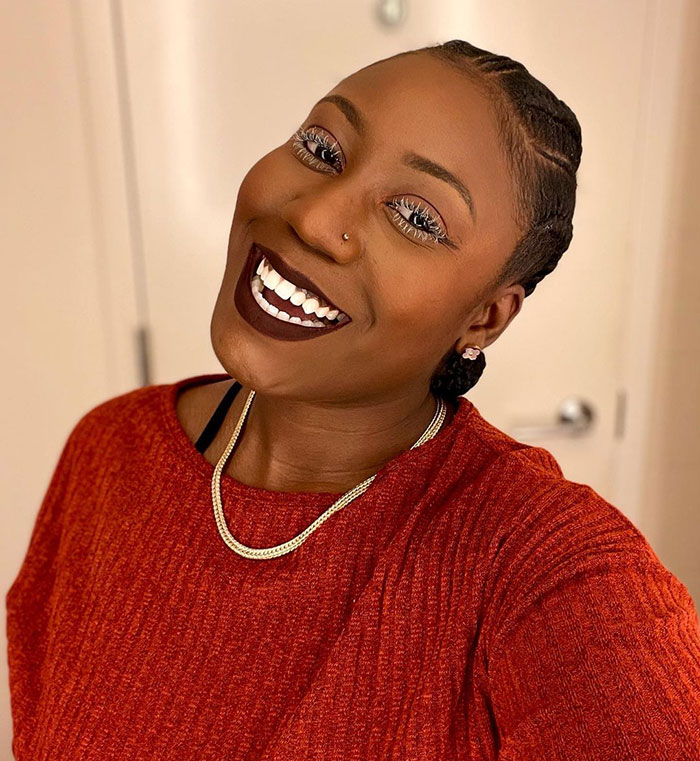

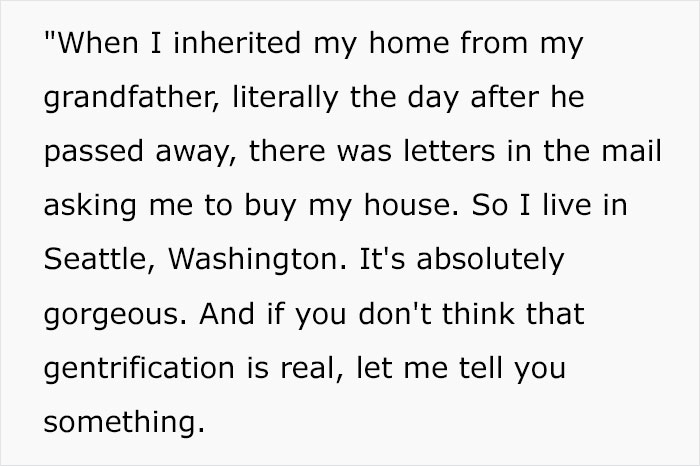
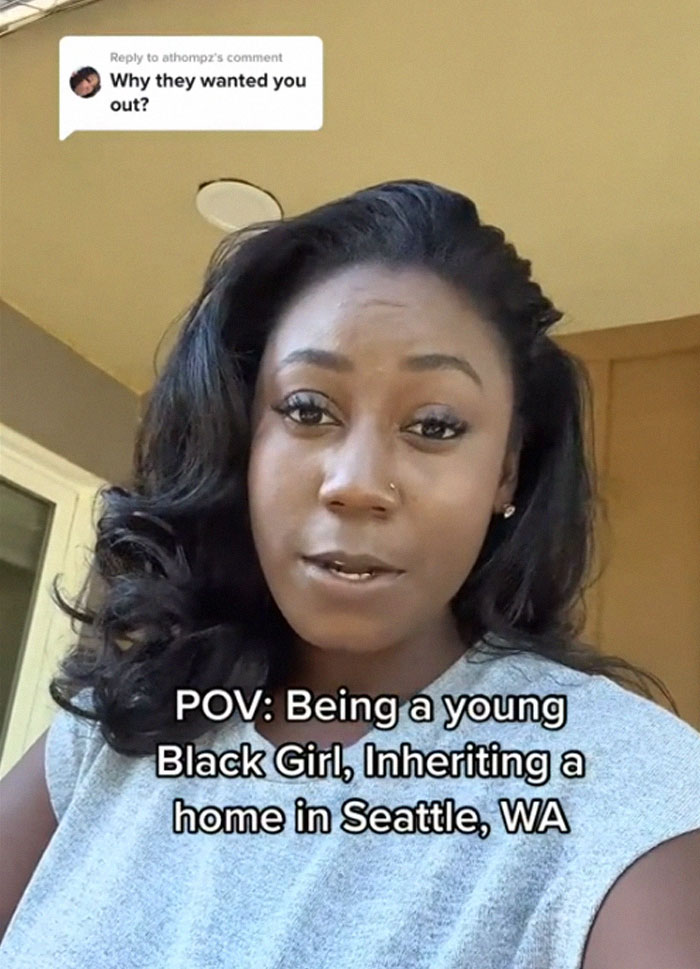
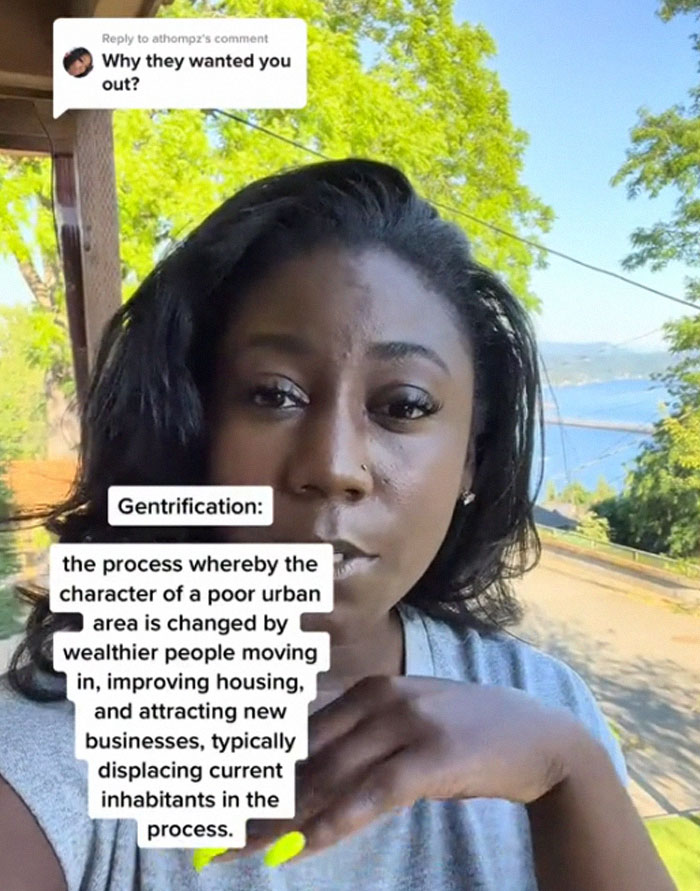
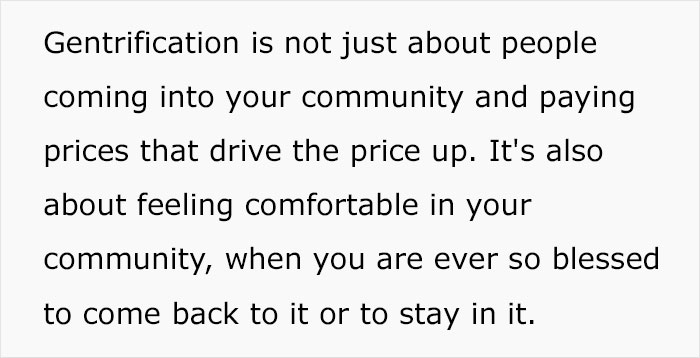
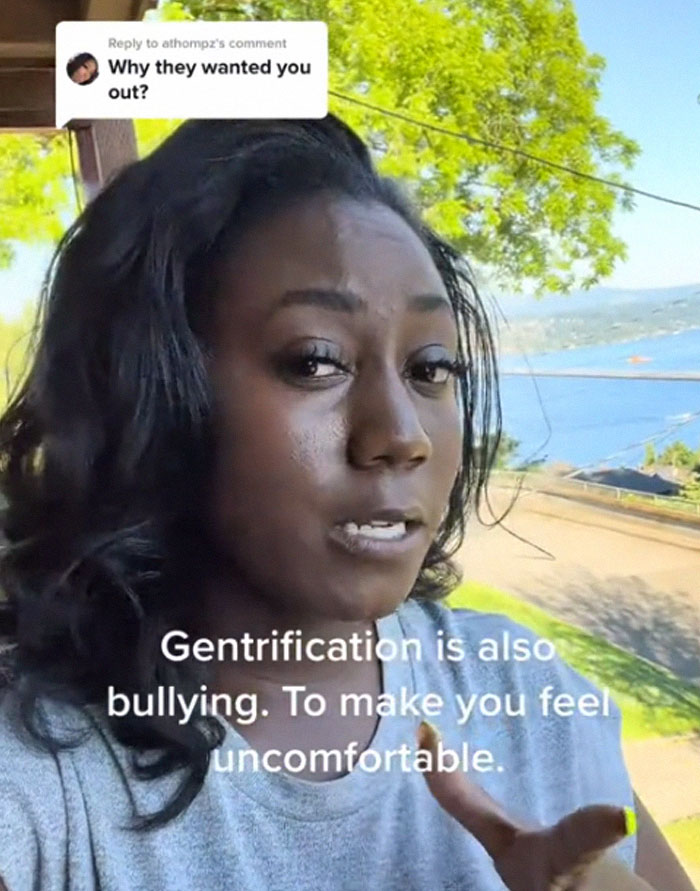
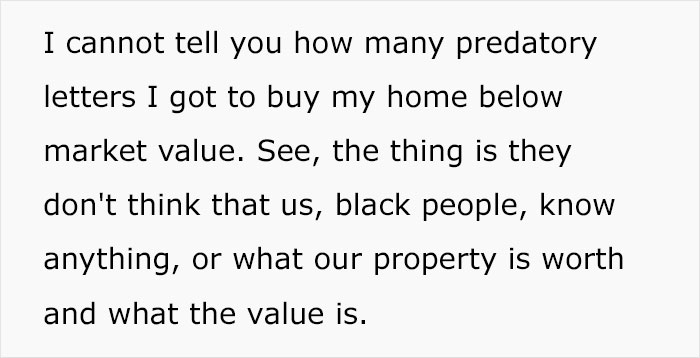
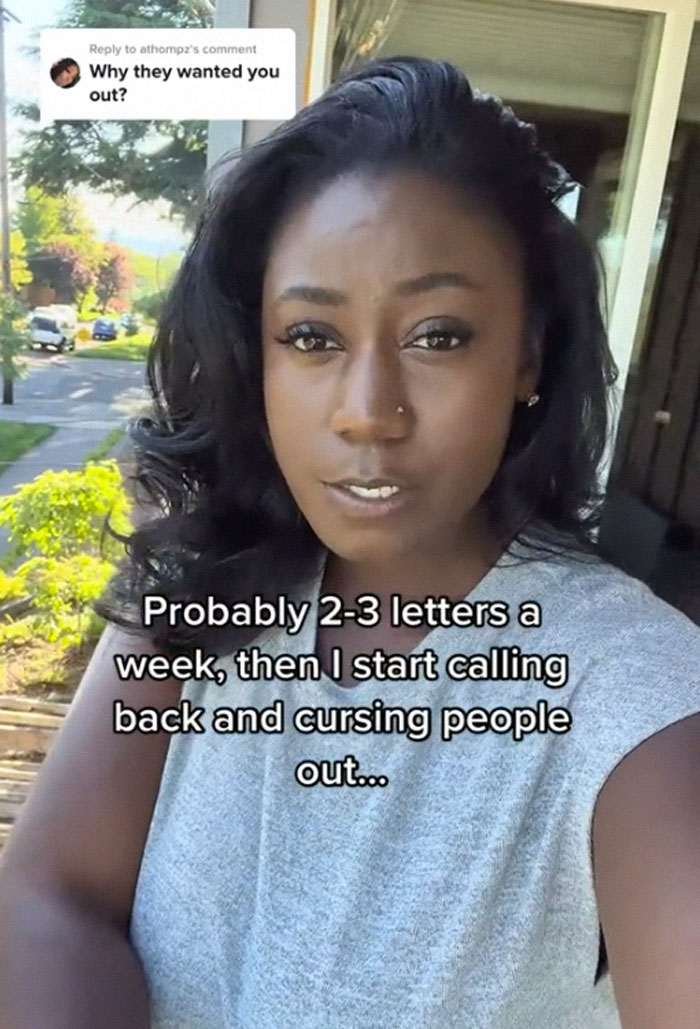
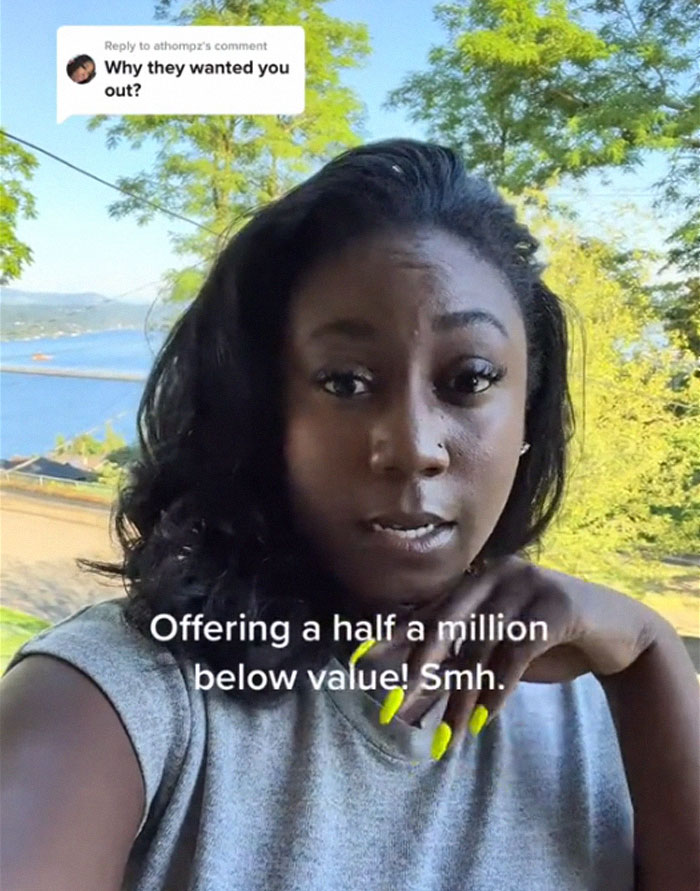
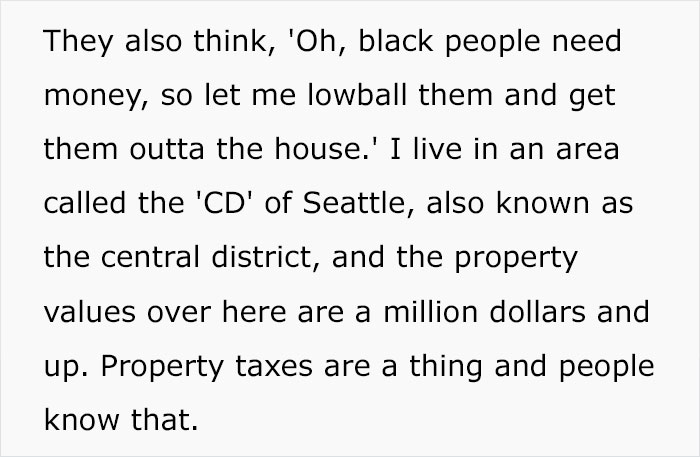
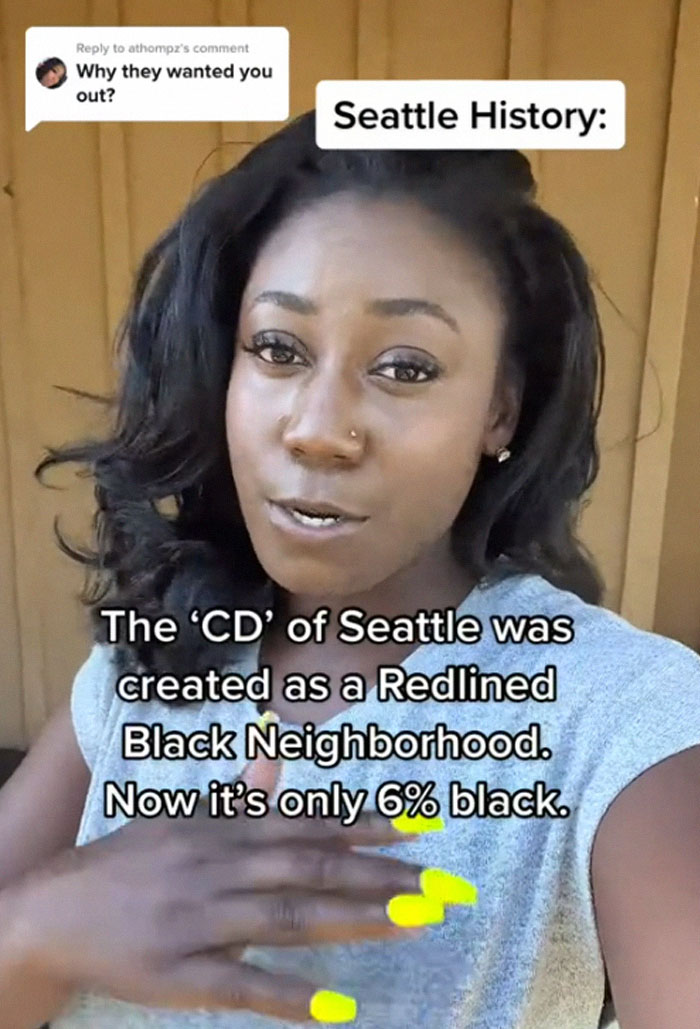
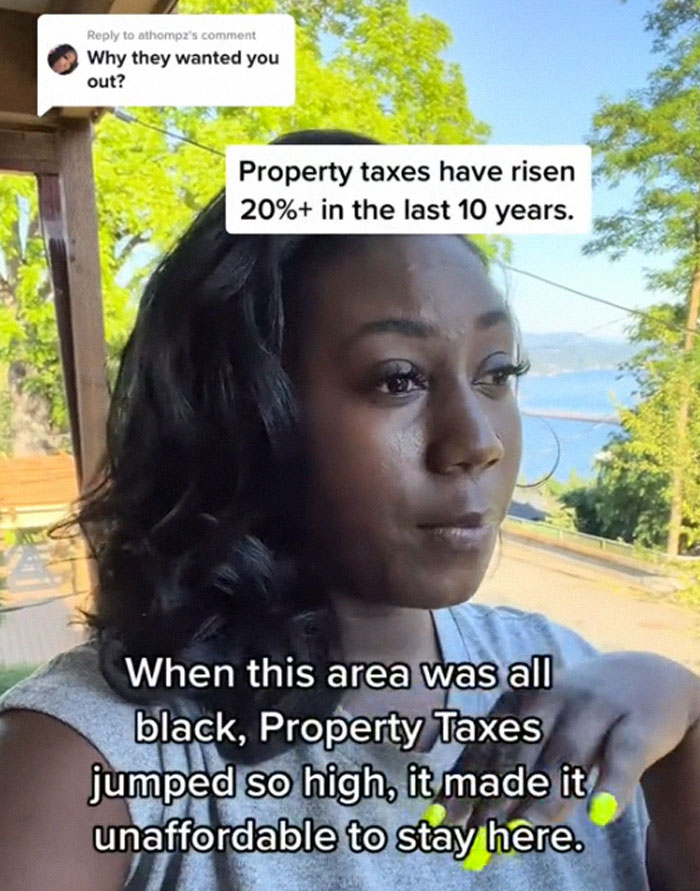
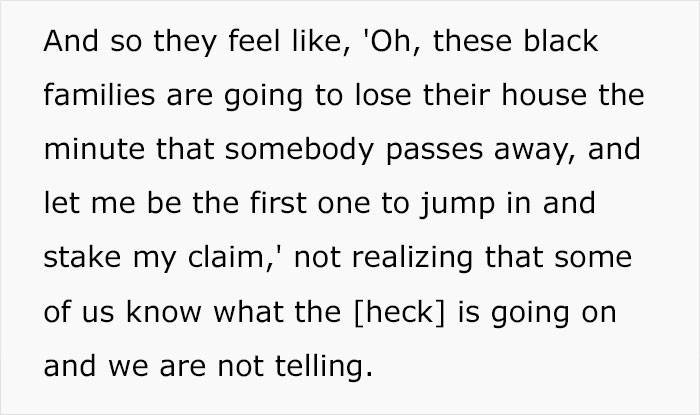

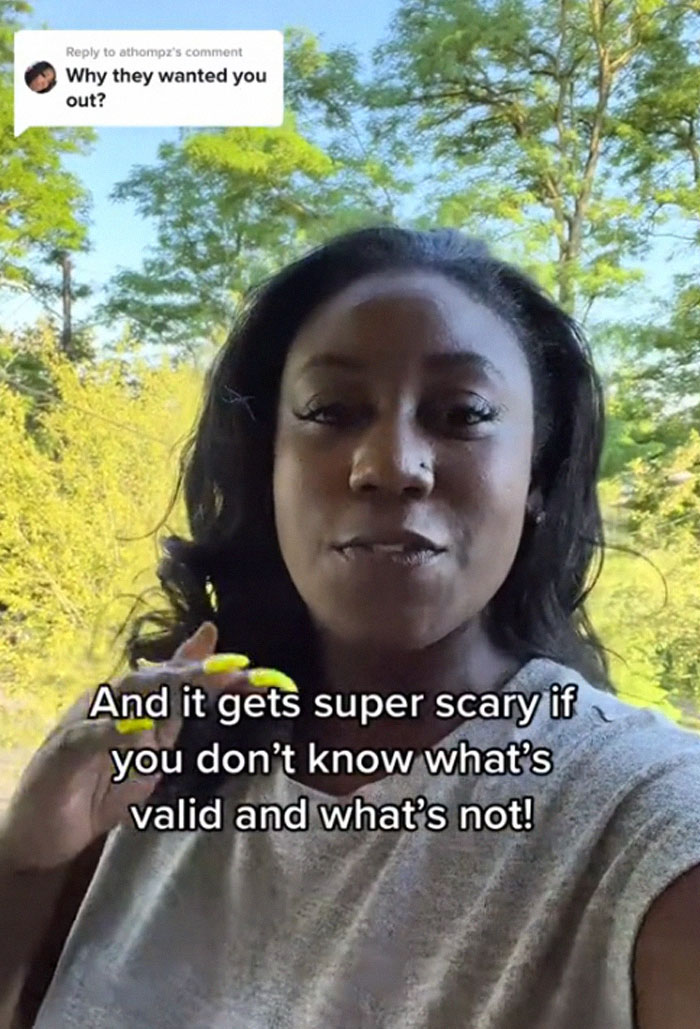
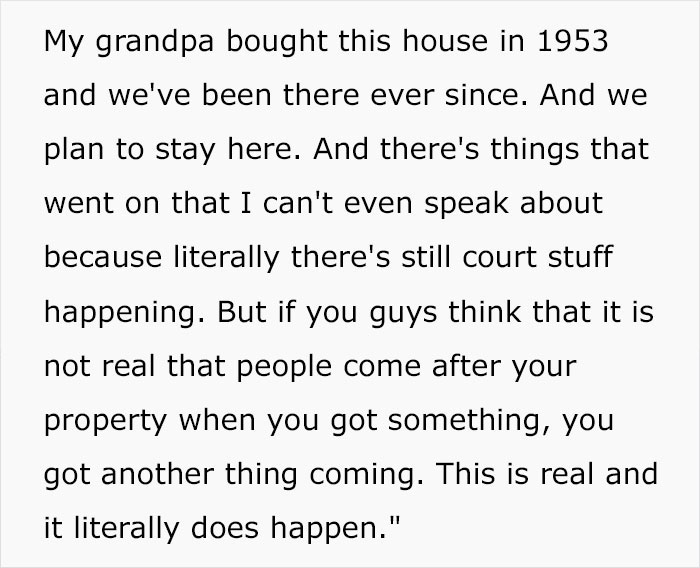
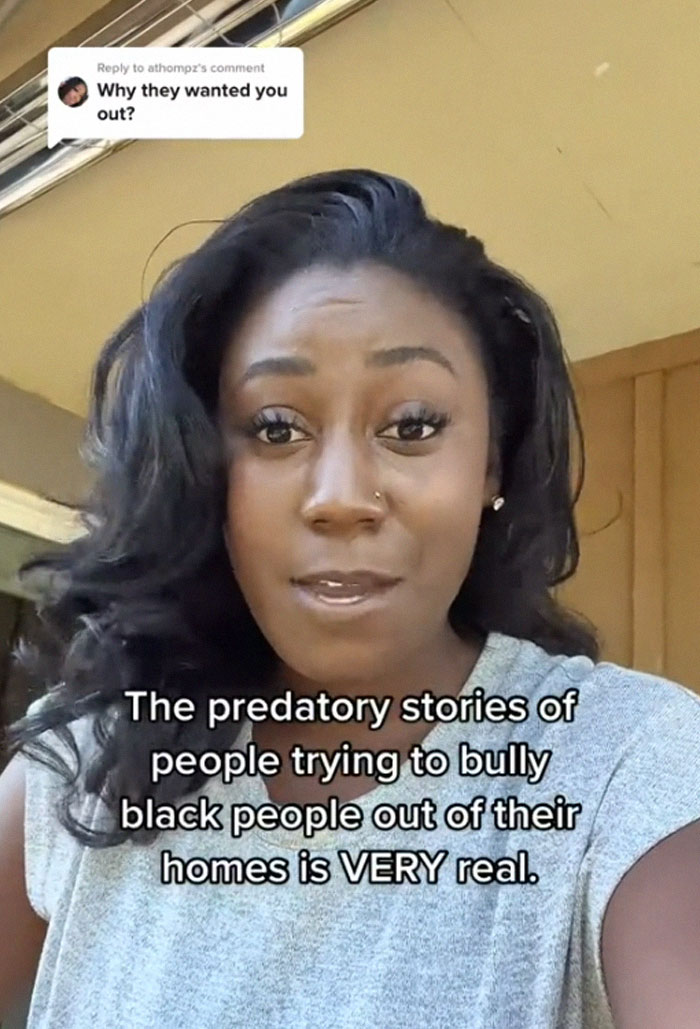
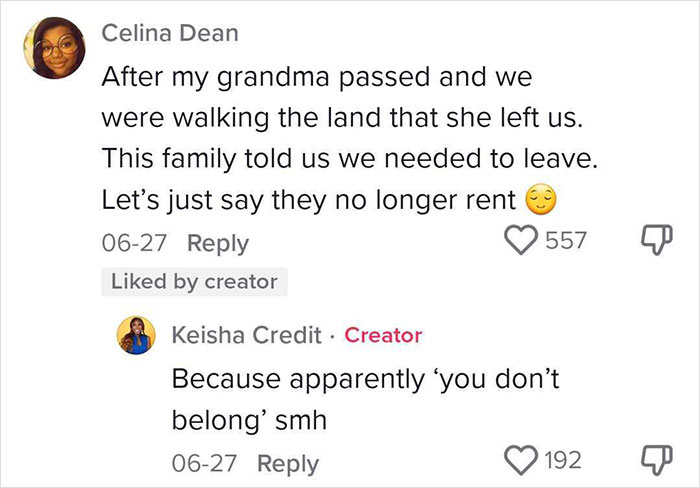
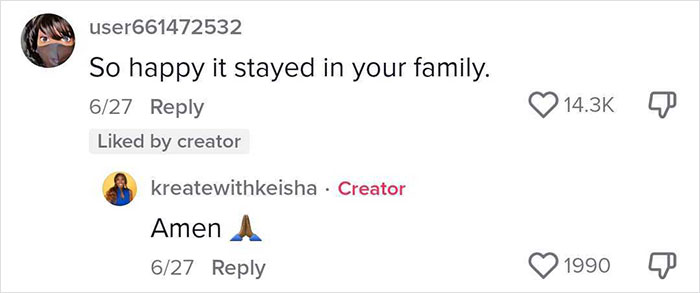

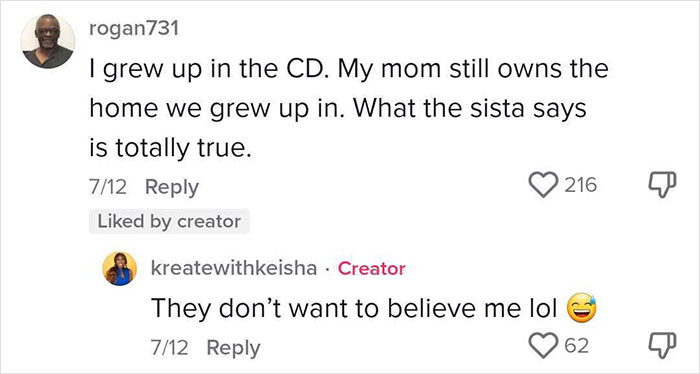




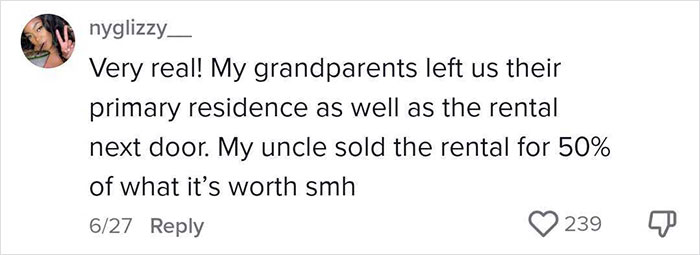

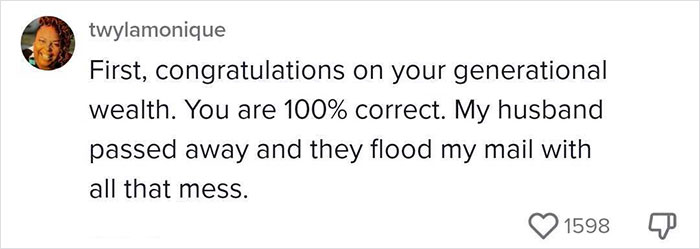
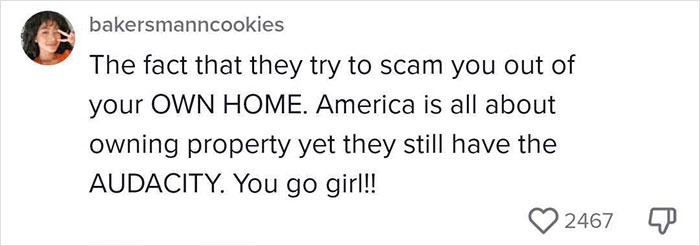
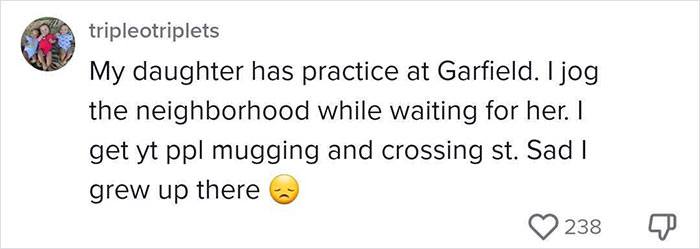


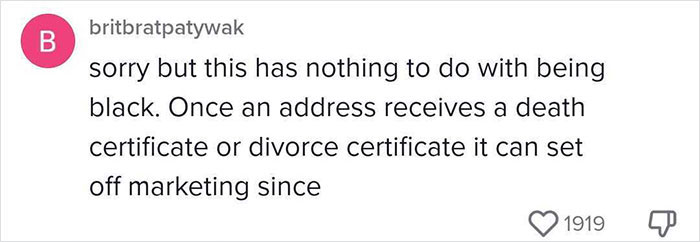


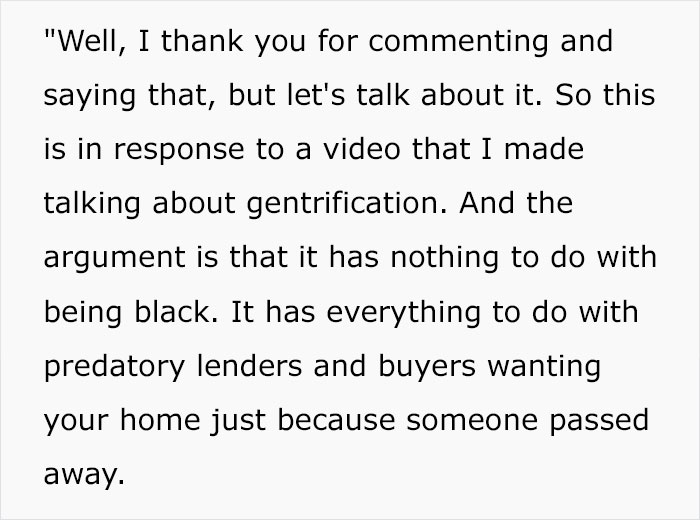
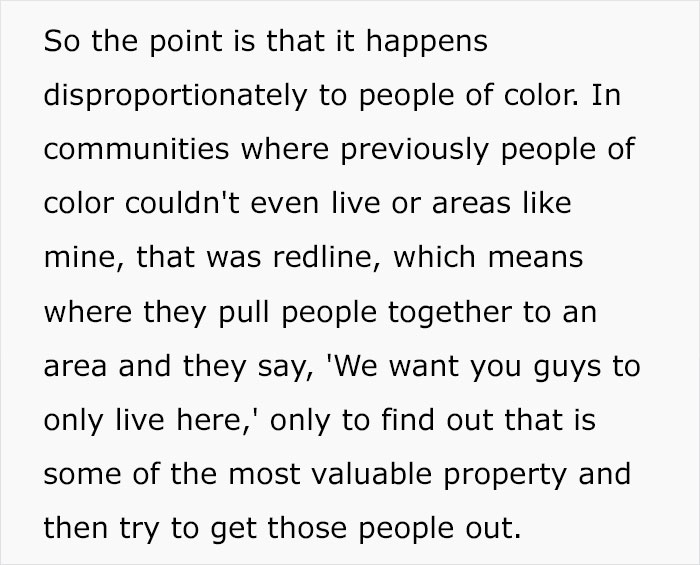
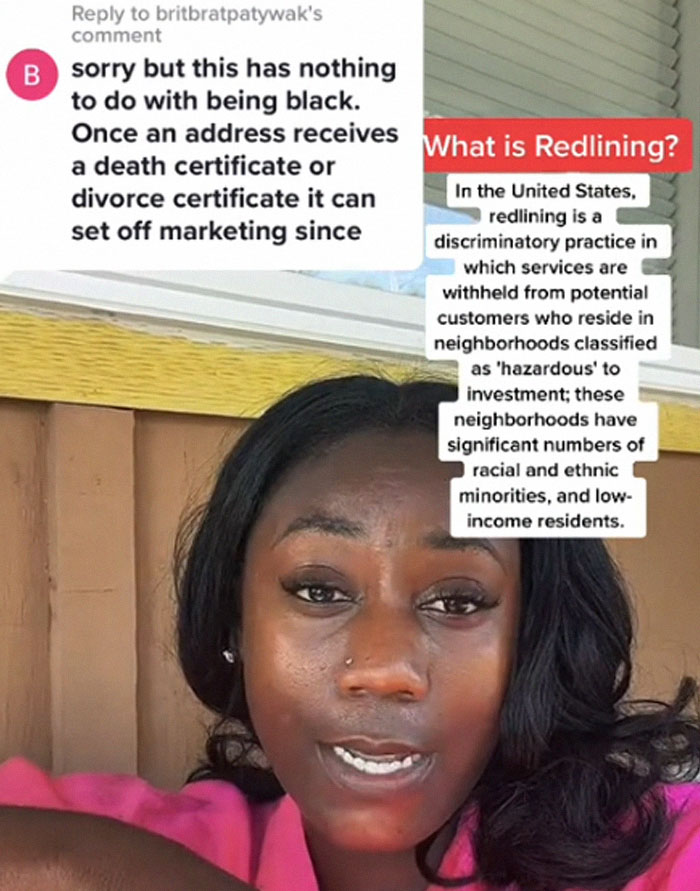
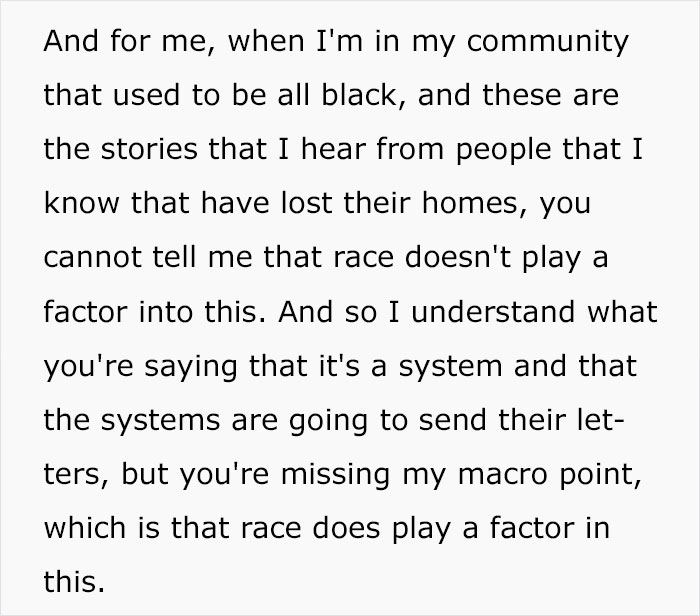
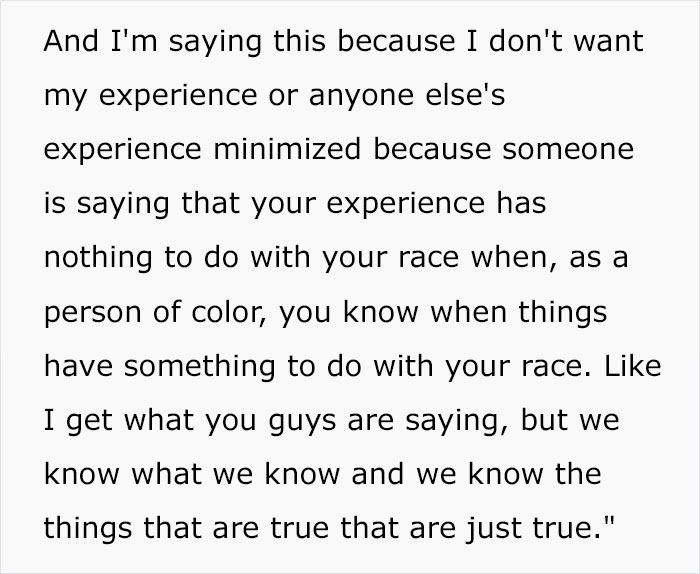




39
71